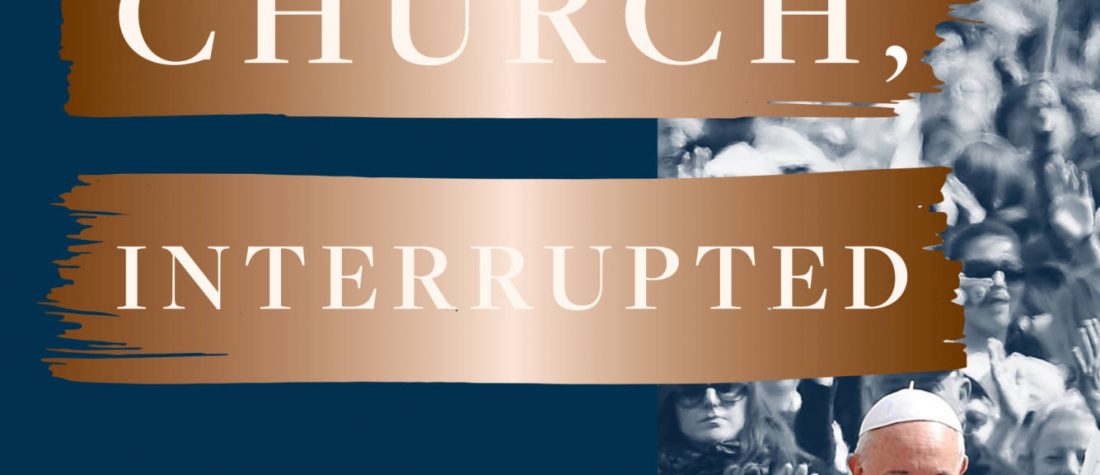One of the things one looks forward to when opening a John Cornwell book on the latest civil war battle in the church or a new papal portrait (he’s written four) is the intimacy of his first-hand reporter-turned-academic style. One can almost smell the plate of double-egged fettuccine, washed down with a second bottle of Antinori Chianti as he gossips with his high-ranking Vatican sources in a Roman trattoria.
But not in this engaging book, where he shadows the first seven years of Francis’s papacy like a canon lawyer, guarding his subject and skilfully defending his reputation at every turn. The normal baroque feast of journalistic details and years of dogged scholastic research is not what the reader is served up in this fascinating, heartfelt and often deeply personal account of Pope Francis and his revolutionary papal regime.
Francis is likened to a “disruptive innovator” CEO coming in and shaking up a complacent, insular, institutionalised, self-preserving work culture in favour of something bold, rad- ical and popular. The book is like a business school case study on the Catholic church as a turnaround project. Francis regards the church as a bloated institution, ripe for a shake-up. He is a disciple of what economists call creative destruction theory.
Cornwell depicts Francis as an entrepreneur and risk taker. Hence, we learn that he won the Adam Smith prize, present- ed by the Harvard Business Review, at the Tribeca Disruptive
Innovation Awards for his encyclical The Joy of the Gospel. We are carried through the various crises and challenges that have defined his papacy: the sexual abuse crisis and church cover-up.
We get a chapter on women priests and deacons, ruminations on gay priests and plenty of examples of Francis’s habit of hold- ing two paradoxically opposed views at the same time. On the subject of divorced Catholics and communion, Francis is acquit- ted by ambivalence, suggesting that he comes close to teaching that “sex and marriage are ideals rather than strict imperatives”.
Cornwell spreads the popular gospel of Francis. Catholics have to use their consciences to decide what is right. There are no easy answers to man’s fallen state. Cornwell approvingly quotes Francis’s famous line, said in 2013 when asked if there was a gay lobby in the Vatican: “Who am I to judge?”
Yet sometimes this witness-for-the-defence approach goes a bit far. At one point, he quotes from an aggrieved letter to Fran- cis from four senior cardinals who objected to Francis over- turning the clear position of John Paul II’s encyclical Splendour of the Truth, which states that “conscience can never be author- ised to legitimise exceptions to absolute moral norms…”
The best part of this book is the parallel narrative in which Cornwell suffuses his own and his extended Irish family’s nar- rative of challenged faith in the Catholic church that Francis is trying to address globally. There’s a vivid moment when he describes how a priest at his seminary tried to get him to un- dress in the confessional over a glass of Madeira. The section on his mother’s failed efforts to get an annulment, and the pain she felt at not being able to receive the sacraments, is moving.
Sometimes he protects too much. In an attempt to clear up the murky affairs of the Vatican Bank, he talks about how Fran- cis brings in a Swiss lawyer, René Brülhart, to serve as head of the AIF of Vatican City. He is described as an “anti-mon- ey laundering wizard”. What is glossed over is that Brülhart’s resignation in 2019 came after Vatican police raided his office as he was linked to a corruption scandal, involving Peter’s Pence being connected to a luxury development in Chelsea.
Like a brilliant QC at the end of an exhausting case, one senses writing this book has been a hard spiritual and personal journey – a pilgrimage of faith lost and renewed. Like Father Brown’s invisible thread, Cornwell has never entirely let go of his belief. But it is Francis that has reeled him back in.
Church, Interrupted: Havoc and Hope: The Tender Revolt of Pope Francis by John Cornwell is published by Chronicle Prism (£21.99)


